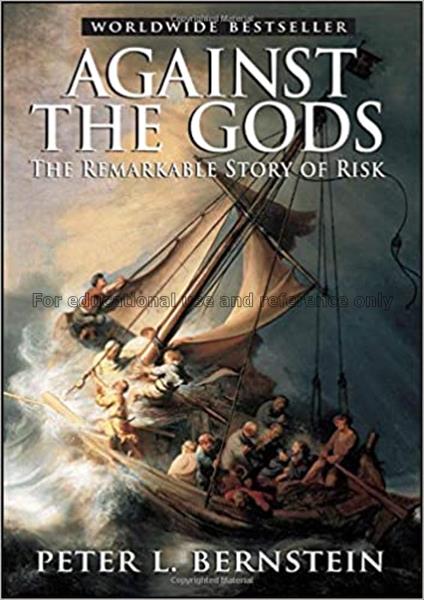Against the gods : the remarkable story of risk / Peter L. Bernstein
Author : Bernstein, Peter L

Risk management, which assumes that future risks can be understood, measured and to some extent predicted, is the focus of this solid, thoroughgoing history. Probability theory, pioneered by 17th-century French mathematicians Blaise Pascal and Pierre de Fermat, has made possible the design of great bridges, electric power utilities and insurance policies. The statistical sampling methods invented by dour Swiss scientist Jacob Bernoulli undergird diverse activities such as the testing of new drugs, stock-picking and wine tasting. Bernstein (Capital Ideas) animates his narrative with a colorful cast of risk-analyzers, including gambling addict Girolamo Cardano, 16th-century Italian physician to the Pope; and John Maynard Keynes, whose concerns over economic uncertainty compelled him to recommend an active, interventionist role for government. Bernstein also traces the development of business forecasting, game theory, insurance and derivatives, and surveys recent advances in risk forecasting made possible through chaos theory and by the development of neural networks
| Barcode | Call No. | Volume | Status | Due Date | Total Queue | |
|---|---|---|---|---|---|---|
| 1010055679 | BA00002 | Available | 0 | Please Login |
Related Book